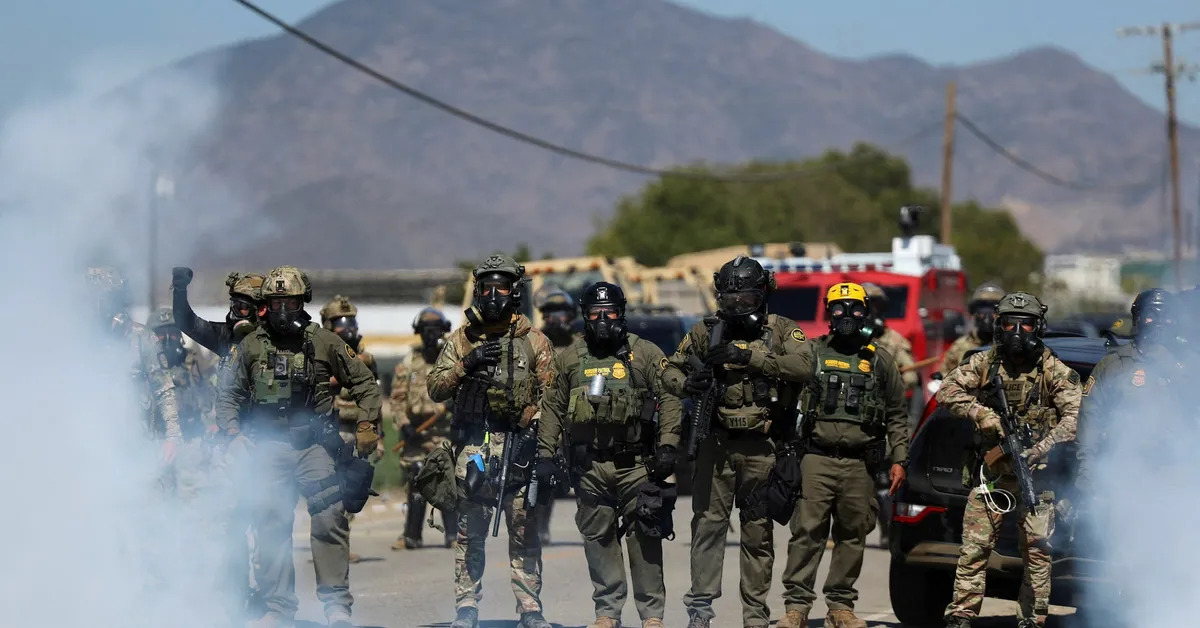
On September 8, 2023, the U.S. Supreme Court upheld President Donald Trump's stringent immigration policies by allowing federal agents to continue their raids in Southern California. These operations seek to identify and deport individuals primarily based on their race or language, raising significant legal and ethical concerns regarding racial profiling.
The Supreme Court granted a request from the Justice Department to temporarily suspend a federal judge's order that had prohibited agents from detaining individuals without reasonable suspicion. This order specifically aimed to prevent agents from stopping or arresting people based on factors such as race, ethnicity, or if they spoke Spanish or English with an accent. The lack of clarity surrounding this issue has resulted in confusion within lower courts and criticism from some justices.
The court's decision was not without dissent. The three liberal justices voiced their discontent, with Justice Sonia Sotomayor highlighting the troubling implications of the ruling. She stated that the administration effectively considers all Latinos, regardless of their citizenship status, as targets for deportation. Sotomayor expressed her disapproval, stating, "Rather than stand idly by while our constitutional freedoms are lost, I dissent."
On July 11, U.S. District Judge Maame Frimpong determined that the Trump administration's actions likely violated the Fourth Amendment, which protects against unreasonable searches and seizures. Her ruling applied to the jurisdiction covering much of Southern California, aiming to safeguard citizens from racial profiling during immigration enforcement.
Conservative Justice Brett Kavanaugh concurred with the Supreme Court's decision, asserting that ethnicity alone cannot constitute reasonable suspicion. However, he indicated that it could be considered a "relevant factor" alongside other circumstances. Kavanaugh emphasized that individuals who are found to be U.S. citizens should be promptly released.
The Trump administration's aggressive immigration policies have instilled fear within immigrant communities across the nation. The administration's request to the Supreme Court is part of a broader strategy to enforce policies that lower courts have challenged. Since taking office, Trump has consistently sought to expand deportations, including a goal set by senior aide Stephen Miller for 3,000 daily arrests.
In a controversial move, President Trump deployed National Guard troops and U.S. Marines to Los Angeles in June 2023 to support federal immigration enforcement. This deployment has faced backlash from local officials and California Governor Gavin Newsom, who argued that it was unnecessary and escalated tensions within the community.
A group of Latino individuals affected by the immigration raids, including U.S. citizens, filed a proposed class-action lawsuit in July against Trump administration officials. The lawsuit accuses agents of conducting detentions based on racial profiling, resembling "brazen, midday kidnappings." One plaintiff, Jason Gavidia, claimed he was mistreated by agents who doubted his citizenship and demanded proof of his legal status.
Judge Frimpong issued a temporary restraining order against the use of race, ethnicity, or language as a basis for immigration stops or arrests, stating that these factors alone do not establish reasonable suspicion. The 9th U.S. Circuit Court of Appeals denied the administration's request to lift this order. As the Supreme Court continues to back Trump’s policies, the future of immigration enforcement remains a contentious and evolving issue.